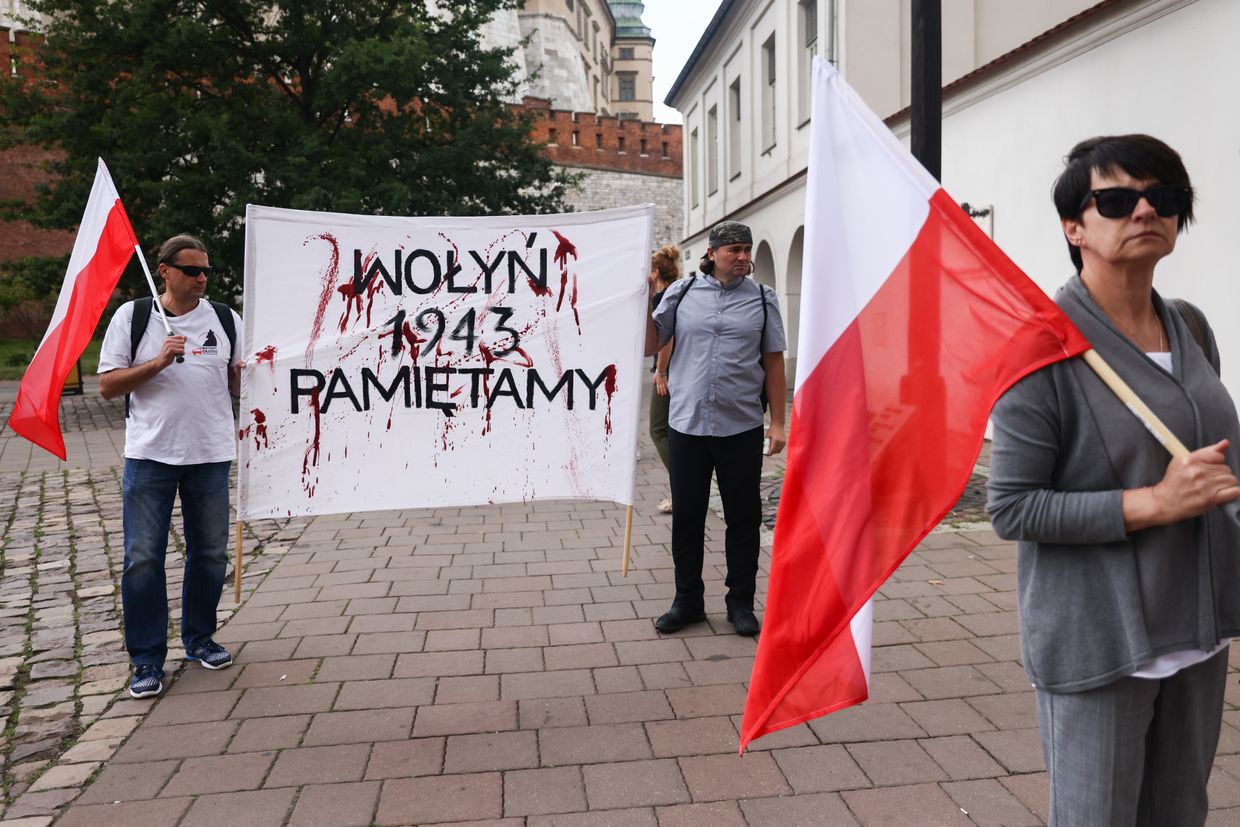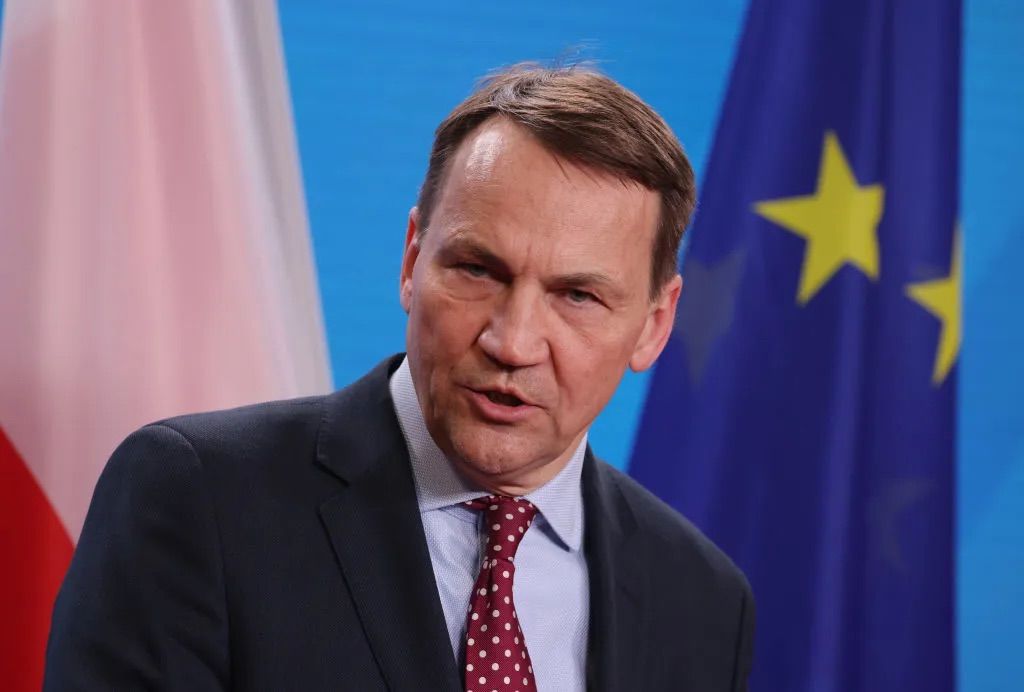Polish Foreign Minister Radoslaw Sikorski on Sept. 13 called on the Ukrainian government to resolve the issue of the Volyn (Volhynia) tragedy.
He was speaking at a press conference with his Ukrainian counterpart Andrii Sybiha, which was attended by a Kyiv Independent journalist.
The minister was referring to the 1943 massacre of tens of thousands of Poles by members of the Ukrainian Insurgent Army (UPA) in Nazi-occupied Volyn, a region that used to be part of Poland and is now part of Ukraine. Thousands of Ukrainians were killed in retaliation.
Despite several attempts at reconciliation between modern-day Poland and Ukraine, the issue has come to the forefront of public discussion several times, namely during the tenure of the conservative Law and Justice (PiS) party, in was in power between 2015 and 2023.
"We have to tell the truth, talk about the Volyn tragedy, about other mutual acts (between Poland and Ukraine)," Sikorski said, adding that Ukraine and Poland must choose a "common and secure future."
Sikorski stressed that victims of the Volyn tragedy should receive "Christian burials."
"This is a non-political issue that cannot be bargained over. And we hope that it will be resolved. This is part of the European canon of values, to which Ukraine also belongs," Sikorski said.
Sybiha, in turn, said that Kyiv shares Warsaw's stance on the need to depoliticize approaches to resolving "complex issues of the past."
"I believe that we have enough political will and diplomatic talent to resolve any difficult or complex relations issues in the spirit of strategic partnership and brotherly relations," Sybiha added.
President Volodymyr Zelensky promised in 2019 to lift the Ukrainian moratorium on the exhumation of Volyn victims, imposed in reaction to cases of destruction of UPA memorials in Poland.
The matter has not yet been resolved, however, and Polish President Andrzej Duda said in 2023 that obtaining permission for the exhumations plays a crucial role in Polish-Ukrainian relations.
In July, a newly erected memorial to the Volyn massacres in Poland sparked controversy by featuring a depiction of a baby impaled on what resembled a Ukrainian trident.
The unveiling ceremony was attended by figures from the far-right Confederation party, while the monument itself was funded by the Polish Army Veterans' Association in America.
Ukrainian historian Serhii Plokhy, director of the Ukrainian Research Institute at Harvard University, estimates that the number of Polish victims of the massacre varies from 60,000 to 90,000.
The number of Ukrainians killed by Poles in the 1940s is estimated at between 10,000 and 20,000, including between 2,000 and 3,000 in Volyn, according to Polish historian Grzegorz Motyka.
In 2016, Poland's parliament recognized the killings as a genocide, a term that Ukraine denies.














